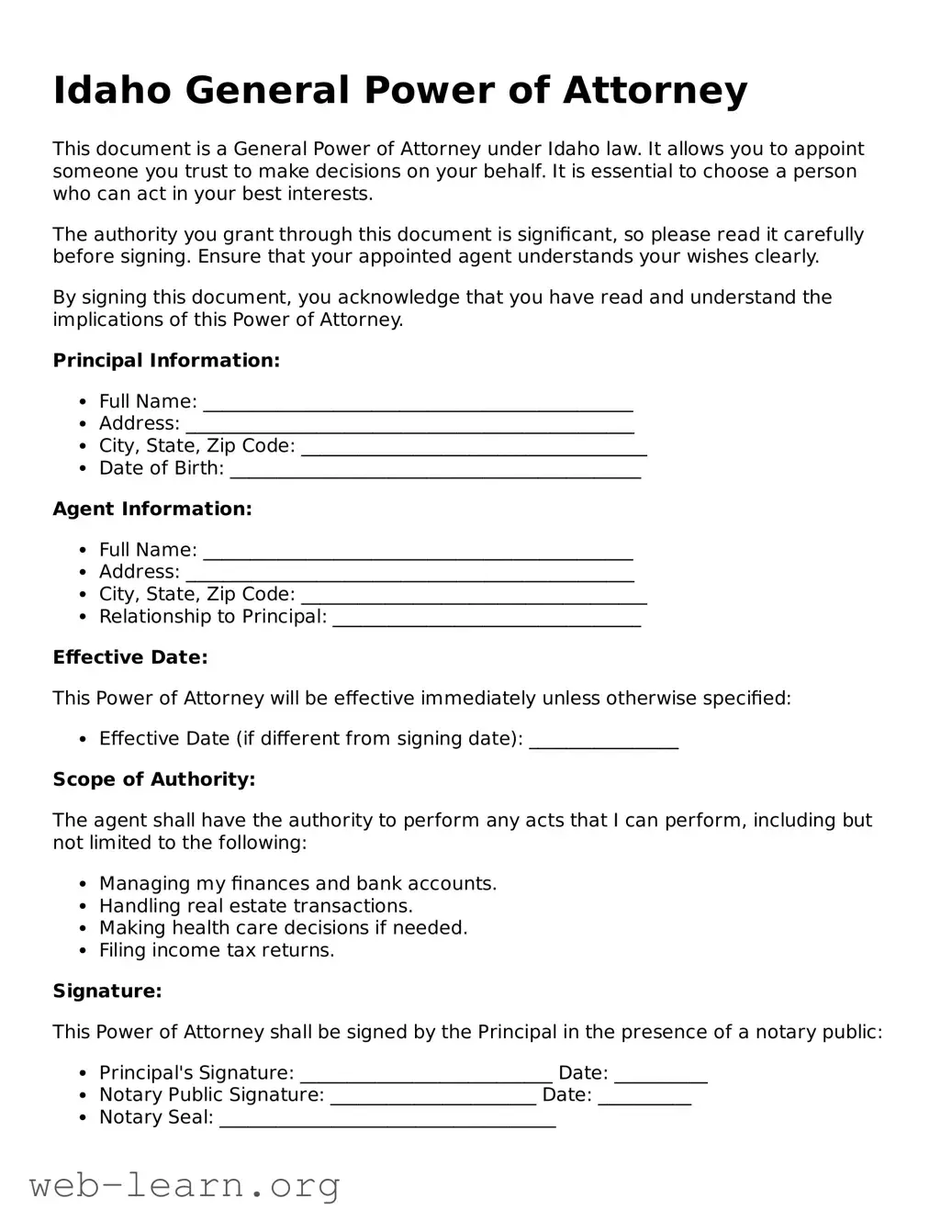Idaho General Power of Attorney
This document is a General Power of Attorney under Idaho law. It allows you to appoint someone you trust to make decisions on your behalf. It is essential to choose a person who can act in your best interests.
The authority you grant through this document is significant, so please read it carefully before signing. Ensure that your appointed agent understands your wishes clearly.
By signing this document, you acknowledge that you have read and understand the implications of this Power of Attorney.
Principal Information:
- Full Name: ______________________________________________
- Address: ________________________________________________
- City, State, Zip Code: _____________________________________
- Date of Birth: ____________________________________________
Agent Information:
- Full Name: ______________________________________________
- Address: ________________________________________________
- City, State, Zip Code: _____________________________________
- Relationship to Principal: _________________________________
Effective Date:
This Power of Attorney will be effective immediately unless otherwise specified:
- Effective Date (if different from signing date): ________________
Scope of Authority:
The agent shall have the authority to perform any acts that I can perform, including but not limited to the following:
- Managing my finances and bank accounts.
- Handling real estate transactions.
- Making health care decisions if needed.
- Filing income tax returns.
Signature:
This Power of Attorney shall be signed by the Principal in the presence of a notary public:
- Principal's Signature: ___________________________ Date: __________
- Notary Public Signature: ______________________ Date: __________
- Notary Seal: ____________________________________
Remember, it is crucial to keep this document in a safe place and inform your agent of its existence. Regularly review your Power of Attorney to ensure it still aligns with your needs and wishes.
